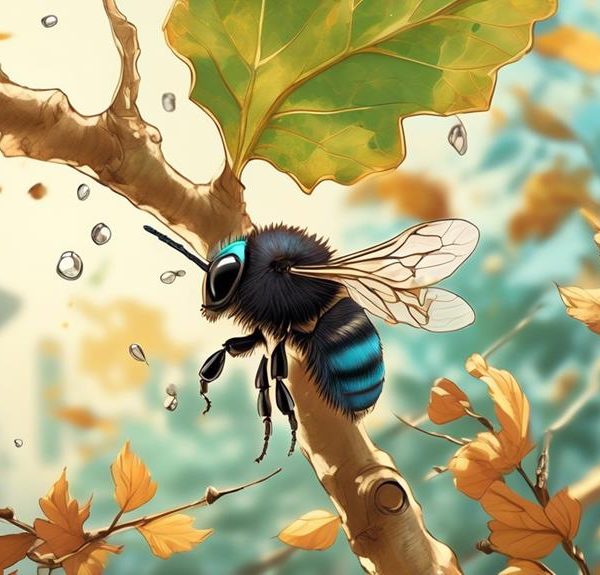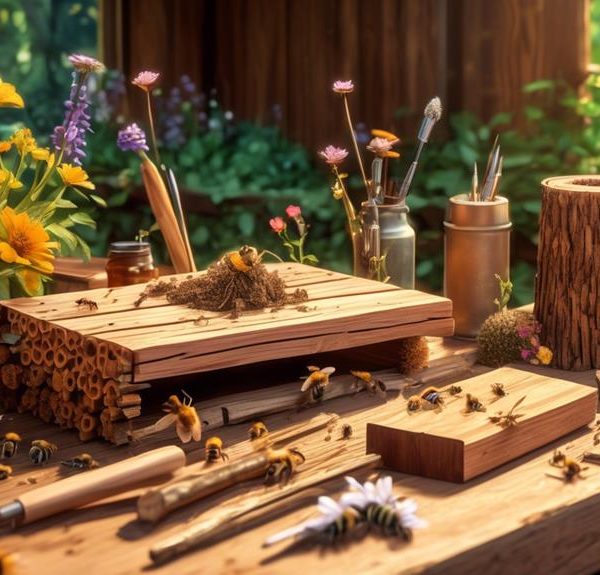Curious about beekeeping? Discover the intriguing world of Mason bees, their importance, and how you can buy them.
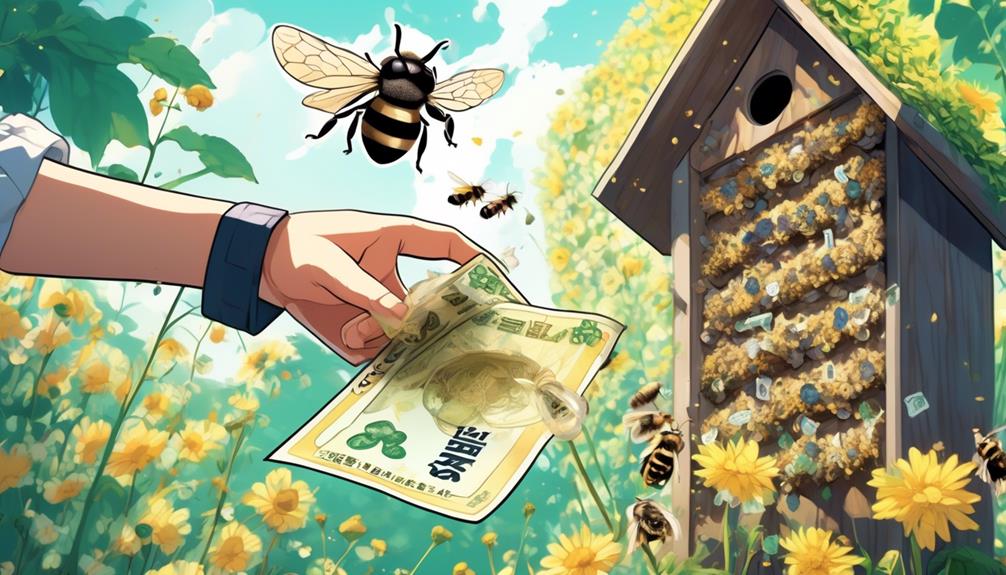
Can I Buy Mason Bees?
Have you ever considered the intriguing possibility of becoming a beekeeper, specifically of Mason bees? You're probably aware of the vital role bees play in pollination, but it's less commonly known that Mason bees, in particular, are exceptional pollinators, often preferred by experienced beekeepers for their efficiency and non-aggressive nature.
Yes, you can indeed buy Mason bees, but before you jump headfirst into this fascinating world, there are essential factors to consider.
So, are you ready to unfold the mystery surrounding these amazing creatures? Stick around, as we're about to embark on an insightful journey into the world of Mason bees.
Key Takeaways
- Mason bees are solitary creatures that make their own nests in hollow reeds or wood.
- They are exceptional pollinators, being more efficient than honeybees and pollinating up to 100 times more.
- Keeping mason bees in your garden can boost productivity and aid in cross-pollination.
- Reputable online platforms like Crown Bees, Mason Bee Central, and BeeDiverse offer mason bees for sale, with different species suitable for various climates and regions.
Understanding Mason Bees
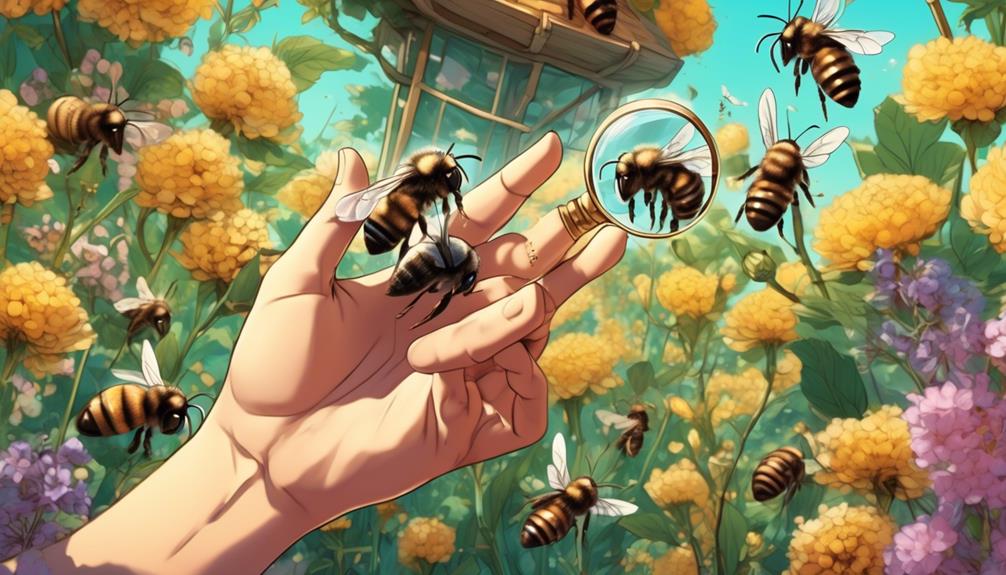
To truly appreciate the value of purchasing mason bees, you'll need to grasp their unique biological traits and behaviors. Unlike honeybees, mason bees are solitary creatures. Each female is fertile and makes her own nest, typically in hollow reeds or holes in wood. They don't live in hives or produce honey, but their pollination skills are unmatched.
A single mason bee can pollinate as much as 100 times more than a honeybee. They're also more tolerant of cool, wet weather, and start working earlier in the morning and finish later in the evening. This makes them particularly valuable for early spring crops.
You'll also appreciate their gentle nature. Mason bees rarely sting. In fact, they'll only do so if they're trapped or squeezed. This makes them safe around children and pets, enhancing their appeal as garden pollinators.
Understanding these characteristics will help you make an informed decision about buying mason bees. By doing so, you're not only supporting the biodiversity of your garden, but you're also contributing to the preservation of these important pollinators. That's a win for you, the bees, and your local ecosystem.
Benefits of Keeping Mason Bees
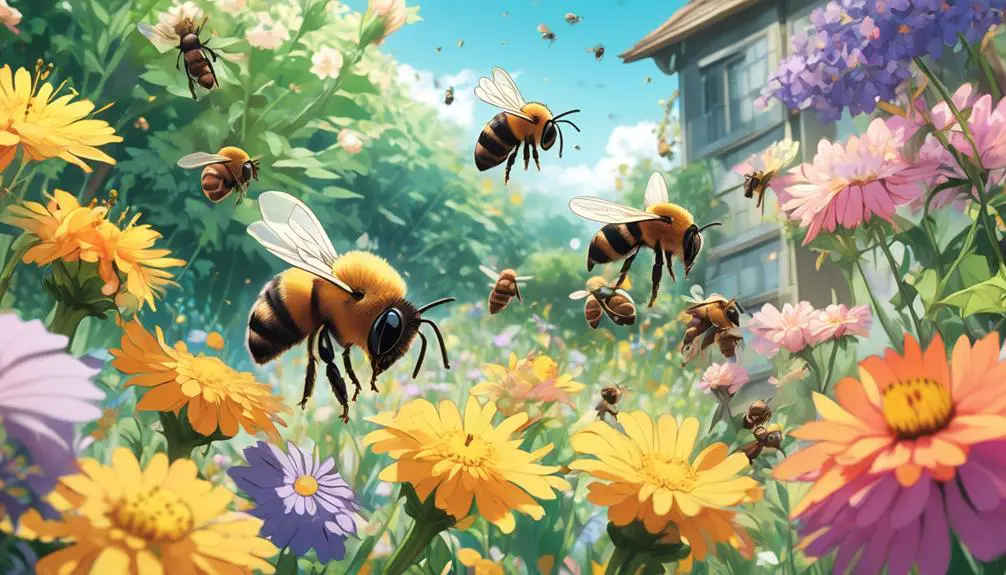
Keeping mason bees offers numerous benefits, from boosting your garden's productivity to promoting biodiversity in your local environment. As an efficient pollinator, a single mason bee can do the work of 100 honeybees. They're interested in flowers, not people, so don't worry about stings. They're also excellent at cross-pollination which results in healthier, more abundant crops.
Mason bees are solitary, meaning they don't live in hives. This reduces the risk of disease and parasites spreading throughout a colony. Additionally, they need minimal management; you don't need to provide them with honey or monitor them daily. Just set up a bee house and let them do their work.
Moreover, these bees support biodiversity. By choosing native plants for your garden, you're helping to conserve local ecosystems. Mason bees will pollinate these plants, helping them to propagate and thrive. They also serve as a food source for birds and other insects, contributing to a balanced ecosystem.
Where To Buy Mason Bees
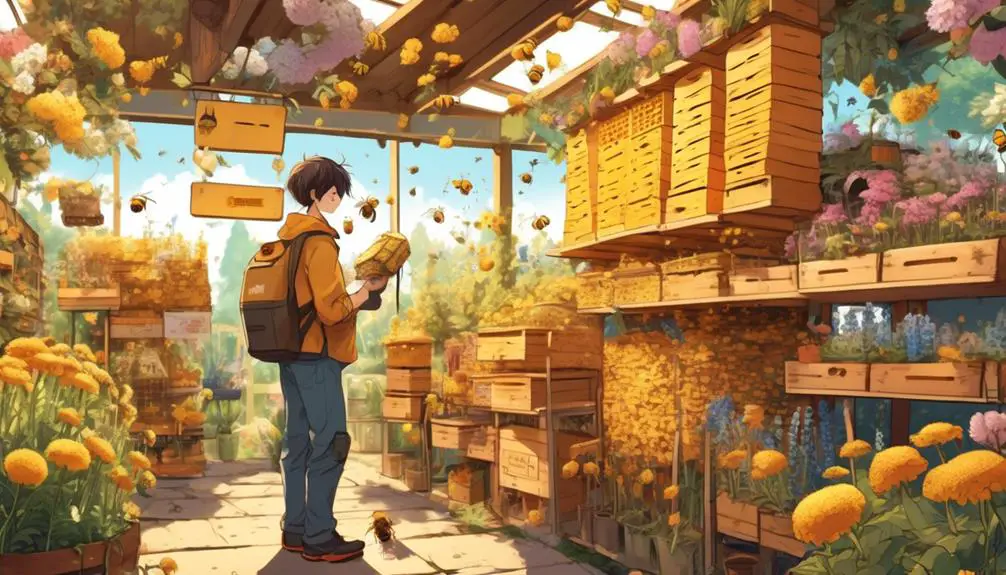
Now that you're aware of the benefits these industrious insects can bring to your garden and local ecosystems, it's important to know where you can purchase mason bees.
Several reputable online platforms specialize in the sale of these beneficial insects. Sites such as Crown Bees, Mason Bee Central, and BeeDiverse offer a variety of species suitable for different climates and regions.
Before making a purchase, it's crucial to understand what you're getting. Typically, mason bees are sold in two forms: cocoons or tubes. Cocoons are the dormant stage of the bee, usually sold during the winter months. Tubes are a bit more complex, containing bee larvae, pollen, and nectar. They're sold in the spring and require more care as you need to ensure their safe emergence.
Preparing for Your Mason Bees
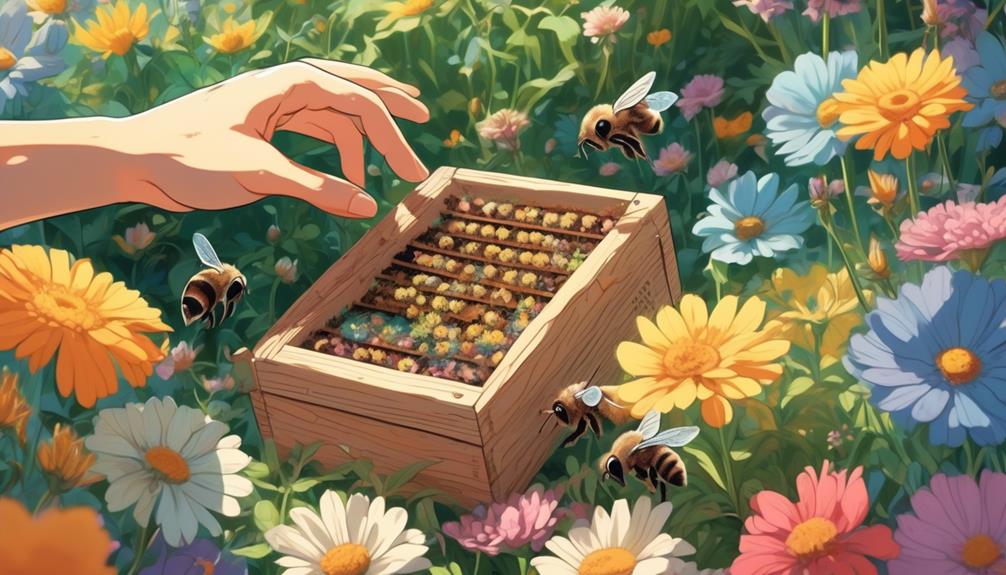
Once you've decided to purchase mason bees, it's essential that you prepare a suitable habitat for these beneficial pollinators, ensuring their survival and productivity in your garden.
Mason bees need a nesting site, which can be a simple bee house or a bundle of hollow reeds. It's also important to provide a source of mud as these bees use it to seal their nests.
Ensure the bee house is securely mounted, ideally 3 to 7 feet off the ground, and facing the morning sun to help the bees warm up and start their day. The presence of native, non-hybrid plants in your garden is beneficial as they supply the bees with nectar and pollen.
In winter, move the bee house to an unheated garage or shed to protect the developing bees from predators and extreme weather conditions. In early spring, place the house back outside.
Caring for Your Mason Bees
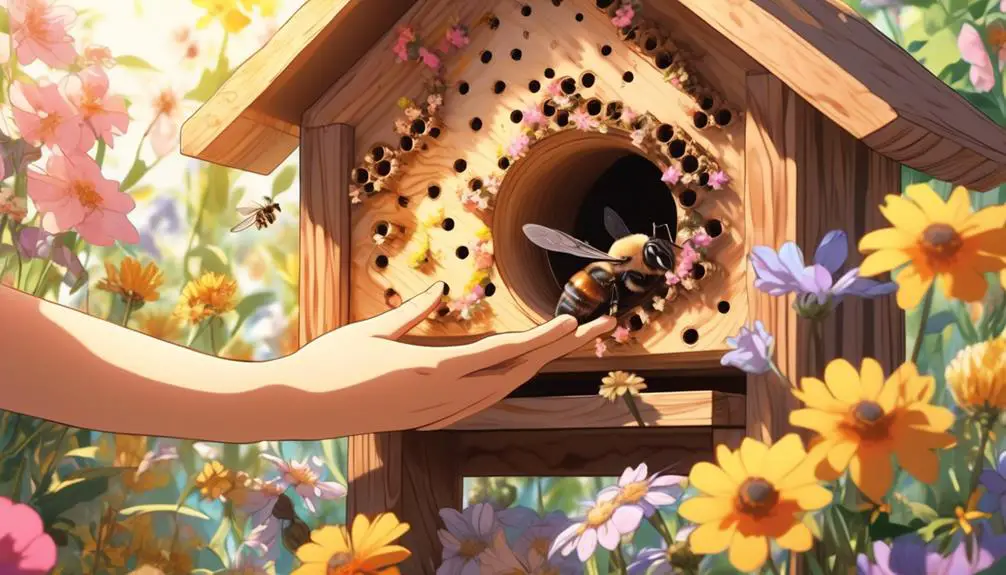
Maintaining the health and productivity of your mason bees involves diligent observation, proper feeding, and protection from predators and diseases. You must regularly inspect your bee house for signs of mites, mold, and other illnesses. If you detect a problem, it's crucial to act quickly and decisively.
Your mason bees' diet is also of utmost importance. They primarily feed on nectar and pollen, so you'll need to provide a variety of flowering plants within their flight range. Furthermore, you should protect your bees from predators like wasps and birds by placing the bee house in a safe location.
Here's a quick guide to help you understand the key aspects of caring for your mason bees:
Observations | Actions | Outcomes |
|---|---|---|
Mites, mold, or disease | Act quickly, apply appropriate treatment | Healthy bees |
Limited nectar and pollen | Provide a variety of flowering plants | Well-fed bees |
Presence of predators | Place bee house in a safe location | Protected bees |
Conclusion
Yes, you can buy Mason bees. They're great pollinators and easy to care for. Sources like local beekeeping shops and online retailers make acquiring them simple.
Beforehand, ensure you've prepared a suitable home and understand their care requirements. Remember, they're not just a purchase, but a responsibility.
With proper care, your Mason bees will thrive, providing invaluable benefits to your garden and local ecosystem.
Embrace beekeeping – it's a fascinating, rewarding endeavor!

